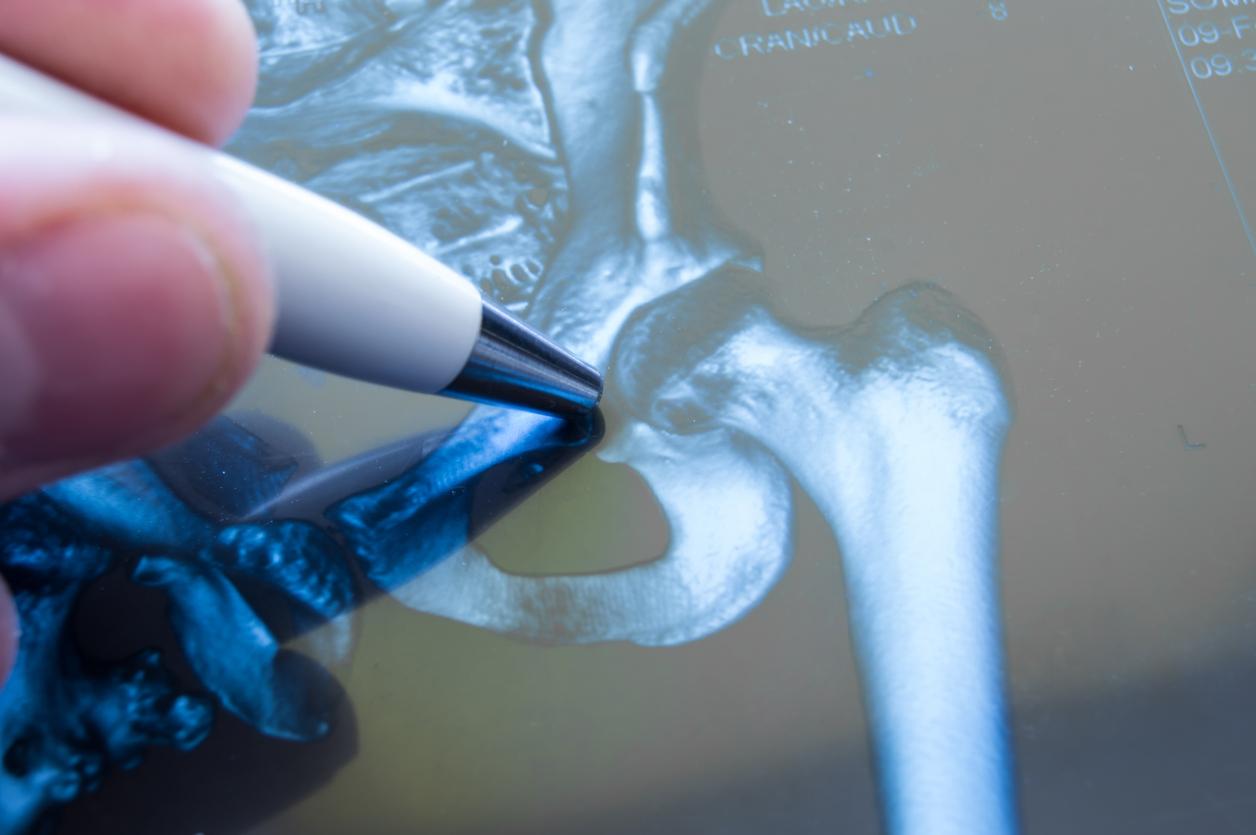Osteoporosis can be secondary to drug treatments. Among the latter, high-dose corticosteroids, anti-aromatases in the case of breast cancer, anti-androgens, which treat patients suffering from prostate cancer, antiretrovirals against AIDS or even antidepressants…

- Osteoporosis can be caused by diseases or treatments.
- Among the high-risk drugs, high-dose corticosteroids, certain cancer treatments, antiretrovirals for AIDS and even antidepressants.
- When taking one of these drugs over the long term, it is necessary to have an optimum vitamin D and calcium intake to preserve bone density.
Osteoporosis is a bone disease that combines a decrease in bone density and changes in its micro-architecture. The bone is more fragile and therefore the risk of fracture increases. With longer life expectancy, osteoporosis and associated fractures represent a major public health problem, warns Inserm. According to the Institute, it is estimated that around the age of 65, 39% of women suffer from osteoporosis. Among those aged 80 or over, the proportion even rises to 70%. Osteoporosis can be caused by diseases or unfortunately secondary to treatments. Which drugs can aggravate the risks and by which mechanisms? “I will take the emblematic example of cortisone osteoporosisanswers Véronique Breuil rheumatologist, specialist in osteoporosis at the University Hospital of Nice. Cortisone, which is given wisely and saves many lives in inflammatory diseases, will have an action on several organs. It will decrease the digestive absorption of calcium and muscle strength with a double effect: less bone formation and more fall. It can play a role in other hormones necessary for good bone health. » But high-dose corticosteroids are not the only drugs at risk.
Anti-aromatases, which are prescribed to patients suffering from breast cancer, or anti-androgens, which treat patients with prostate cancer, may also be involved. “These are therapeutic revolutions but the goal being to bring estrogen or androgen levels to almost zero, the patient will no longer have their beneficial effect on the bone”explains Véronique Breuil.
Antiretroviral drugs given to people with AIDS and serotonin blockers taken by patients with depression are also at risk. “And more generally, all psychiatric treatments”, says the expert.
Calculate his bone density
But if you can’t do without one of these drugs in the long term, how can you minimize its deleterious effect on the bones? Make sure you have an optimum intake of vitamin D and calcium. You can supply yourself with vitamin D by exposing yourself to the sun for at least 15 to 20 minutes daily at the end of the morning or in the afternoon, but also by consuming foods such as fatty fish (herring, sardines, salmon, mackerel) , certain mushrooms (girolles, porcini mushrooms and morels), dairy products enriched with vitamin D, egg yolk or even dark chocolate. For a sufficient dose of calcium, it is recommended to eat at least two dairy products a day (if possible three) and to drink plenty of mineral water. Cooked cheeses such as Comté or Parmesan are the richest in this material: 30 grams provide 263 mg of calcium. If you can’t stand dairy products, consume plenty of mineral water, meat and vegetables.
Véronique Breuil also advises practicing regular physical activity and calculating your bone mineral density (BMD) “to determine if in addition to these essential measures, you need a specific treatment”. “It is a non-painful examination and reimbursed on prescription”specifies the specialist who recalls that he “You don’t have to do it every day. We will assess, based on your risk at two years, to see if there has been a significant reduction in bone mass.. It is therefore an examination to be carried out over the long term in the case of treatment for a long or chronic illness.
A healthy lifestyle
And what to do when this examination shows a significant decrease in bone despite a good intake of calcium and vitamin D? Faced with a lower than normal BMD, depending on your case, your possible pathologies, your fracture risk factors and your current treatments, your doctor may prescribe bisphosphonates. These drugs “will attach themselves to the bone to prevent it from destroying itself”.
” In conclusion, summarizes Véronique Breuil, when you take these drugs (likely to weaken the bones, Editor’s note), you must have an excellent lifestyle and benefit from this bone mineral density screening for osteoporosis to see if you are among the patients at risk, and follow up to compare the results with the start of treatment. »

.















